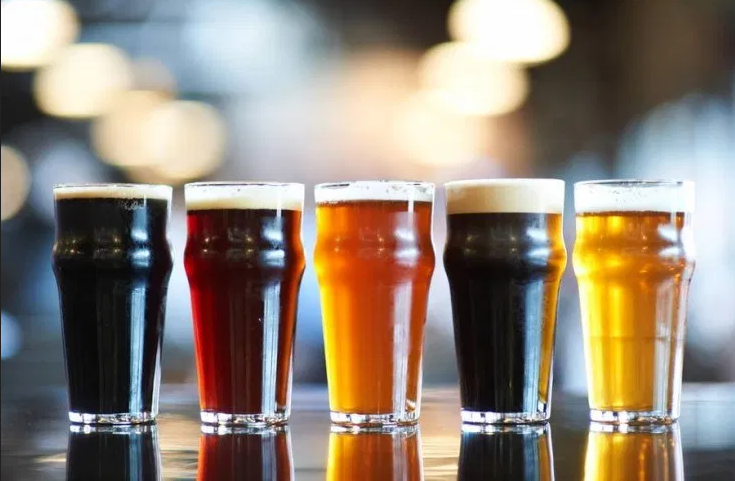
Wed, Oct 7, 2020 10:46 PM
Makers of niche real ales and bottled craft beers have fought back in recent years against the market dominance of imported lagers.
That’s down to men like Dougal Sharp. The Scot spent his adolescence helping out in the Caledonian brewery after his father led a buyout in the late 1980s. However, he never wanted to make a career in it. Instead, he went to Sheffield University to study chemistry. Days after his graduation ceremony in 1994, Caledonian’s facilities were damaged by a fire. “It was a big blow ... and my dad asked me to come back for nine months and help.” Sharp loved it and decided to take an apprenticeship with brewer Timothy Taylor. Brewing beer is like cooking, says Sharp: “using your instincts to get the best flavour out of ingredients”. He began experimenting, and after some initial disasters, he began producing decent beer. Indeed, Caledonian even started collecting awards and sales rose. Yet Sharp was frustrated. “It was a small company ... I couldn’t get promoted and the firm was focused on local markets.” Disheartened, he was about to leave and study for an MBA when international spirits maker William Grant & Sons (Grant’s) approached
Caledonian. Grant’s hoped to make a beer-flavoured whiskey and needed help. “They wanted us to produce a beer that could give their oak barrels flavour. Then they would tip out the beer and put in whiskey to create ale-finished whiskey.”
After several months of testing, the prototype product was ready. Then something strange happened. One of Sharp’s contacts in the Grant’s distillery told him that instead of throwing away beer that had been used to flavour the oak, workers had taken to drinking it. Sharp got a sample sent over and tasted it for himself. “As soon as I had a sip I knew it was good stuff.” The time spent in the oak barrels meant that the beer had absorbed a “unique flavour”. Sharp’s instinct was confirmed when Caledonian’s testing panel awarded its highest-ever marks to the beer. Sharp took the beer to the firm’s sales director, but “he refused to back it”. Frustrated, Sharp approached Grant’s, which was “very interested”.
Sharp commissioned a local brewer to help him churn out the oak-finished beer. In the first year, Innis & Gunn (a combination of the middle names of Sharp and his brother) had sold £400,000 worth. “Having the backing of an international group made a big difference, they had great connections with distributors.” Sharp started shipping his beer to Sweden, Finland and Norway. In effect, Grant’s had acted “as a business incubator”.
But Grant’s decided “to focus on its core business” and wanted out. Sharp approached the banks and used his stake in the firm as collateral for money to buy out Grant’s. Eager to pay off those loans, he began expanding the export business and selling into the US, Canada and Australia. “Around 80% of our sales now come from exports. Very few small British brewers are that export-focused.” With the debts paid off and last year ’s sales at £5.5m, Sharp is concentrating on a new fruit beer that promises “a very different taste” for beer-lovers.





